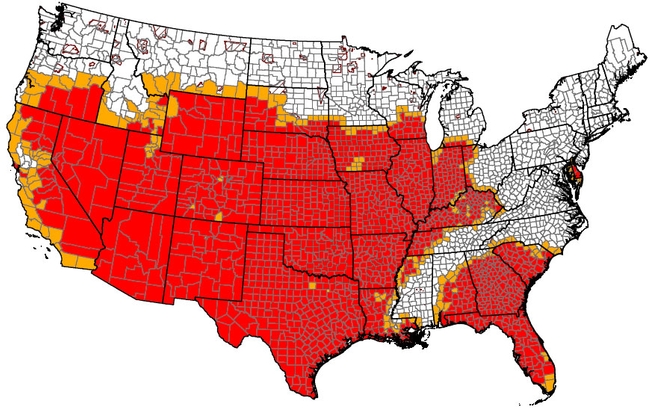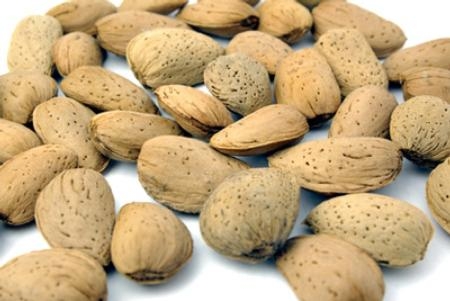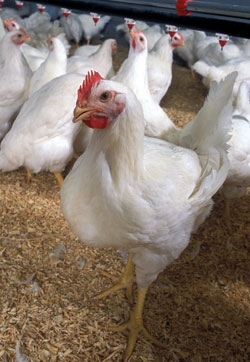Posts Tagged: Daniel Sumner
GMO labeling is costly proposition for California
Proposition 37 would result in $1.2 billion in higher costs for farmers and food processors, higher prices for consumers and new regulations, according to an article published in Western Farm Press that refers to a new UC Davis study. The article is credited to the No on 37 campaign.
If passed, Proposition 37, which is on California's November ballot, would require labeling of genetically engineered food.
“The proposed regulations have no basis in science and impose rules that would have significant costs for food producers, processors and marketers, and ultimately for consumers, while providing misinformation and no demonstrable benefits,” the article quotes Julian Alston and Daniel Sumner, professors in the Department of Agricultural and Resource Economics at UC Davis.
An editorial in the Los Angeles Times notes that the work for the study was undertaken with partial funding support from No on 37.
"That doesn't mean the study is without interest for voters," wrote Karin Klein in the editorial.
Some farmers won't suffer due to drought
National Public Radio's Planet Money pointed out that many U.S. farmers who are losing their crops due to drought won't suffer financially because they have government-subsidized crop insurance.
U.S. taxpayers spend about $7 billion a year on crop insurance, the story said.
Daniel Sumner, director of the UC Agricultural Issues Center and professor in the Department of Agriculture and Resource Economics at UC Davis, said he isn't in favor of the government giving farmers subsidies.
Ski resorts suffered last winter when there wasn't a lot of snow. The government doesn't say, "Sorry you didn't have a lot of skiers. Here's a check," Sumner said.
Valley farmers wary of new water rules
Mark Grossi, The Fresno Bee
A UC study released in March says 96 percent of the Central Valley's groundwater contamination problem comes from agriculture, and it threatens the drinking water of 250,000 valley residents. The study suggests better monitoring and management of fertilizers are needed to ease the problem. By using only the amount of fertilizer needed by plants, the nitrates would be controlled. Leaders of water-user groups say farmers already aim for that goal and have become far more efficient. Yet, the state assumes all farmers are discharging to the groundwater, said David Orth, general manager of the Kings River Conservation District and coordinator of a coalition representing farmers in the four-county area. "In other words, everybody is guilty until they prove themselves to be innocent," he said.
Experts: Rinds one reason for salmonella-infected cantaloupe
Scott Kanowsky, WBEZ 91.5
Cantaloupe rinds could be one reason behind a recent salmonella outbreak linked to the fruit. "It's much easier to scrub the surface of a honeydew melon than it is to scrub the surface of a cantaloupe and actually remove microorganisms that are on the surface,” said Linda Harris, UC Cooperative Extension specialist in the Department of Food Science and Technology at UC Davis.
California farmers can meet world food challenges
California agriculture is poised to match the growing demands of the world's booming population and expanding wealth, concluded AgAlert editor Ching Lee in her story about the California Ag Summit last week at UC Davis.
Asking where agriculture is heading requires considering the forces that are driving both the supply side and the demand side, said Daniel Sumner, director of the UC Agricultural Issues Center.
As people's incomes go up, they tend to demand more dairy and meat products. California leads in U.S. dairy production, Sumner noted, and other agricultural sectors are linked to dairy, such as alfalfa and other feed crops. Demand for grains usually goes up with people's income, as more of those commodities are used to feed livestock, he said.
The challenge facing agriculture is trying to feed more people in a world that is richer and more urban on basically the same land area with less water, said Alex McCalla, professor emeritus at the UC Davis Department of Agricultural and Resource Economics.

As a population's wealth rises, so does the demand for products produced in animal agriculture industries.
California almond production approaching 2 billion pounds
"It's remarkable," said Daniel Sumner, director of the UC Agricultural Issues Center.
"There are two things going on," he said. "We have improved the nature of the orchards, both in the way that we plant them and the varieties and the like. And there's a lot more acres."
In the last decade, low cotton prices prompted many farmers in the southern San Joaquin Valley to plant almonds on former cotton acreage, the article said. A growing world demand for nuts, especially from China's emerging middle class, is helping sustain strong commodity prices and driving production gains.
Winter is the ideal time to buy, plant bare root fruit trees
Debbie Arrington, The Sacramento Bee
Now is the time to plant bare-root fruit trees. UC Cooperative Extension farm advisor Chuck Ingels said some are easier to grow than others and each fruit comes with its own challenges.
"For beginners, cherries are out; don't even think about it – just too hard," Ingels said. "Peaches and nectarines are really good, except for the leaf curl issue (caused by a fungus). Apples and pears are great except for blight and codling moths. People tend to live with those problems or cut down the tree.
"More and more, I think plums and pluots (a plum-apricot hybrid) are the best choices for backyard orchards," Ingels said. "They're the easiest to grow with wonderful fruit. Pluots especially are the way to go."
The price of chicken feed is rising
Soaring feed costs are forcing San Joaquin Valley poultry producers to cut costs, raise prices - and, in some cases, close their doors, reported Robert Rodriguez in the Fresno Bee this weekend. Feed prices have climbed as much as 50 percent since last year, fueled by the increasing demand for corn.
Director of the UC Agricultural Issues Center Daniel Sumner told the reporter that rising costs for poultry producers will boost the retail price, unless something else acts to keep prices down.
"So, bottom line," Sumner said, "we should see higher retail prices with these high grain and oilseed prices."
Ranchers beef over obstacles to local meat
Carlos Alcalá, Sacramento Bee
Small ranchers in El Dorado County gathered at a Local Meat Summit in Placerville last week to discuss obstacles to selling their products locally. Meat must be harvested at a USDA-approved facility, and there aren't many of those.
Program representative Sean Kriletich of UC Cooperative Extension in Amador and Calaveras counties is working with ranchers to solve the problem.
"We're trying to work toward getting a USDA-inspected facility for our region," Kriletich said.
If more small ranchers can find a way to sell grass-fed beef locally, it will do more than benefit the farmers, Kriletich said. It will preserve open space for the entire community.
"If people want to keep more land in agriculture, we have to get more money to the producers," said Kriletich, who said he used to run cattle himself, where El Dorado Hills subdivisions now sit.
Beekeepers asking Humboldt cities to loosen regulations on residential hives
Grant Scott-Goforth, The Willits News
A recent change in attitudes toward urban sustainability and education about bee culture spurred the Humboldt County Beekeepers Association to ask the cities of Arcata and Eureka to loosen restrictions on residential beekeeping.
UC Cooperative Extension farm advisor Deborah Giraud said the risks of keeping bees in residential areas are minimal. ”In general, it's really important to have more honeybees,” Giraud said. “We have a lot of problems with pollination here because of weather. Most calls in here are about fruit trees. And it's a pollination problem.”




